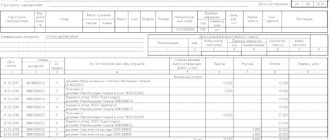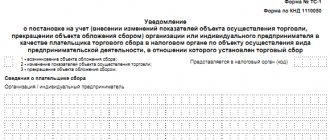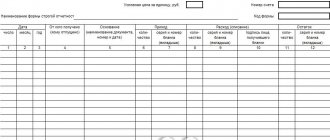Options for accounting under the simplified tax system
The law does not provide for special accounting regulations for companies using the simplified tax system. However, it should be noted that the list of criteria for “simplified” largely coincides with the parameters of small businesses (Article 4 of Law No. 209-FZ of July 24, 2007 “On Development...”).
Moreover, the specific requirements for “simplified” workers are much more stringent. For example, their annual revenue limit is 150 million rubles. against 800 million rubles. among “small” businessmen. Therefore, we can say that almost any company that uses the simplified tax system is also a small business.
For managers of small enterprises Art. 7 of the Law of December 6, 2011 No. 402-FZ “On Accounting” provides the opportunity to choose various options for organizing accounting:
- Keep records yourself.
- Hire a chief accountant or form an accounting department.
- Conclude an agreement with an accounting firm or individual specialist.
In addition, with any of these options, “small” businessmen have the right to keep records in a simplified format. This format should not be confused with the simplified taxation system, because it relates exclusively to accounting.
We will tell you in detail about the features of accounting under “simplified” in the following sections.
Tax accounting registers for income tax
Additional registers will have to be drawn up in the case where the taxpayer has many types of activities, and also, in addition to standard business transactions, operations are carried out with special conditions for the transfer of ownership or for which a special procedure for forming the tax base is provided.
- revenue from sales of self-made products (RUB 50,367,000);
- revenue from sales of purchased products (RUB 30,590,000)
- proceeds from the sale of other property (RUB 300,000);
On our website you can download completed tax accounting registers, a sample of which relating to income is drawn up according to the data in the example discussed.
For example, certain types of expenses are reflected in full in the accounting system, but are normalized in the accounting system (advertising, representative expenses, etc.). And tax legislation generally prohibits recognizing some types of expenses as expenses that form the taxable base for income tax.
Read about the nuances of recognizing other expenses associated with production and sales here.
The accountant took the information to fill out the register from accounting data (for accounts 20, 26, 44, 91, etc.). During the reporting period, the company did not incur expenses, the recognition of which in the financial accounting does not coincide with the accounting rules, so there was no need to adjust the accounting data.
IMPORTANT! If tax expenses exceed tax revenues and there is no taxable base for profit in any of the periods (tax or reporting), a declaration must still be submitted to the tax authorities (clause 1 of Article 289 of the Tax Code of the Russian Federation).
Accounting for LLC using the simplified tax system
The law does not establish a specific procedure for “simplifying” accounting. Features of accounting for small ones according to various accounting regulations. In particular, they have the right:
- Take into account income and expenses “for payment” (clause 12 of PBU 9/99 and clause 18 of PBU 10/99)
- Take into account all interest on loans as other expenses, even if the loan was received for the purchase of fixed assets (clause 7 of PBU 15/2008).
- Correct significant errors of past periods in a simplified manner, i.e. on the day of detection (clause 9 of PBU 22/2010).
- Do not overestimate financial investments (clause 19 of PBU 19/02)
All of the above concessions are used by businessmen within the framework of regular accounting: using accounts, double entry, etc. However, other options are also possible.
The Institute of Professional Accountants of the Russian Federation (IPB RF) has developed and agreed with the Ministry of Finance (minutes dated April 25, 2013 No. 4/13) three options for accounting for small enterprises:
- Regular accounting, but with a reduced number of accounts and a simplified approach to recording individual business transactions.
- With double entry, but without the use of accounting registers. In this case, all transactions are recorded in a special book.
- Simple accounting. A ledger is also used here, but accounts and double entry are not used. IPB RF specialists recommend this option for micro-enterprises with up to 15 people.
Features of drawing up accounting policies
Taking into account the characteristics of small businesses, the accounting policy must reflect:
- Selecting a simplified accounting option
- List of accounts and accounting registers used.
- Features of reflecting individual operations.
Sometimes small businesses may not use all the opportunities provided by law to simplify accounting.
For example, keeping accounting “by payment” is inconvenient in many cases. This reflection of income and expenses often does not show the real state of the business, especially if there are significant amounts of advances received or debts.
What reporting must be submitted under the simplified tax system and when?
Simplification of accounting extends to financial statements. Small businesses can only submit two forms: balance sheet and income statement. In addition, these reports can be provided in an abbreviated form - with less detail of the indicators (Appendix 5 to the order of the Ministry of Finance of the Russian Federation dated July 2, 2010 No. 66n).
Important!
All organizations, incl. and representatives of small businesses must comply with the requirements of paragraph 1 of Art. 13 of Law No. 402-FZ. It states that financial statements must provide complete information about an economic entity.
If an organization, despite its formally small scale, has a complex asset structure and is engaged in a variety of activities, then two abbreviated forms may not be enough to fully reflect all business data. In this case, you should fill out reports on a general basis.
Accounting statements are submitted annually and the timing of their submission does not depend on the composition of the forms. For 2020, all organizations were required to report to tax authorities and statistical authorities within three months. Starting from 2020, a mandatory electronic format will be introduced. But at the same time, it will no longer be necessary to provide data to statistics.
But here, too, an indulgence has been made for small enterprises: they can switch to an electronic format from 2020, and for 2020 submit their balance sheet and other accounting forms on paper for the last time (Clause 4, Article 2 of Law No. 444-FZ dated November 28, 2018). The three-month deadline for submitting reports will not change after switching to the online delivery format.
How to simplify accounting for “simplified people”?
“Kids” (small businesses using the simplified tax system) can conduct accounting in a simplified way.
However, the situation changes if the “kids” are subject to mandatory audit. In this case, companies are faced with the need to ensure full accounting.
The simplified method can also be used by non-profit organizations that have received the status of participants in the Skolkovo project (clause 4 and clause 5 cn.6 of Law No. 402-FZ).
If the “simplified” person is a “baby” or an NPO or a Skolkovo participant and is not subject to mandatory audit, then simplified accounting methods can be used and accounting (financial) statements can be generated using special (abbreviated) forms.
What is the essence of simplified accounting?
Important! Simplified accounting can be carried out:
?using a simple form of accounting (that is, without using registers for accounting of the property of a small enterprise);?according to the accounting form using accounting registers for the property of a small enterprise (clause 21 of Order No. 64n of the Ministry of Finance of the Russian Federation dated December 21, 1998).
Let's briefly consider the essence of two simplified methods of accounting.
Tax accounting under a simplified taxation system
The main feature here is the recognition of income and expenses “on payment”. This option is used for both “simplified” options: the “Income” and “Income minus expenses” objects. Also, in tax accounting under the simplified tax system, there is virtually no depreciation: the cost of purchased fixed assets is written off during the acquisition period (with the exception of “transitioning” objects that were registered before the application of the simplified tax system).
The main tax register used by “simplified” people is the book of income and expenses (KUDiR). The book reflects the main income and expenses that form the taxable base, and also separately takes into account special types of transactions that affect the calculation of tax, for example, the purchase of fixed assets.
Other types of taxes that require special reflection of income and expenses (VAT and income tax) are generally not paid under the simplified tax system. That’s why the “simplified” people don’t organize accounting for them.
But sometimes businessmen have to pay both “simplified” and “general” taxes at the same time. For example, VAT on the import of imported goods is paid regardless of the tax regime used. The same applies to income tax on dividends.
In such cases, a company using the simplified tax system has to keep tax records for several types of mandatory payments simultaneously.
The main tax report for “simplified” people is a declaration according to the simplified tax system. It is submitted annually, and the deadline for submission depends on the category of taxpayer: legal entities must submit it by March 31, and individual entrepreneurs by April 30. If a “simplifier” pays other “general” taxes (for example, VAT at customs), then he must submit reports on them within the usual deadlines established for all businessmen.
If a company or individual entrepreneur on the simplified tax system is an employer, then all reporting related to salary applies to them: 2-NDFL, 6-NDFL, DAM, 4-FSS, SZV-M and SZV-experience.
Important!
All of these reports are provided by “simplified” people in the same manner as businessmen using the general tax system.
What does this mean in practice?
For the purposes of calculating the single tax under the simplified tax system, individual entrepreneurs have organized tax accounting in the book of income and expenses (clause 4, clause 1, article 2, clause 1, clause 2, article 6 of Law No. 402-FZ, article 346.24 of the Tax Code of the Russian Federation) .
For small businesses, it is recommended to maintain accounting records using the following accounting register systems:
- a unified journal and order form of accounting for enterprises, approved by letter of the USSR Ministry of Finance dated 03/08/1960 No. 63;
- journal-order form of accounting for small enterprises and business organizations, approved by letter of the USSR Ministry of Finance dated 06.06.1960 No. 176;
- simplified form of accounting in accordance with the Standard Recommendations given in the order of the Ministry of Finance of the Russian Federation dated December 21, 1998 No. 64n.
Peculiarities of accounting for individual entrepreneurs when simplified
The main feature of individual entrepreneur accounting is that it does not need to be maintained at all. The law exempts entrepreneurs from this obligation if tax accounting is present.
However, many individual entrepreneurs still conduct accounting on a voluntary basis. The reasons here are:
- Tax accounting is focused on calculating the base for mandatory payments, so it does not provide complete information about the state of the business. In addition, KUDiR under the simplified tax system is carried out “by payment”, and this approach often leads to a misunderstanding of the situation by the businessman.
- External users often request “standard” accounting statements because they provide a quick overview of the business. This need arises, for example, when participating in government procurement or applying for a bank loan.
Because For individual entrepreneurs, the accounting procedure is not regulated, so they usually choose one of the simplified options described above, which are used by small enterprises.
How to offset or return overpayment of taxes for individual entrepreneurs using the simplified tax system
How to create a tax accounting register
To use tax accounting registers, you will have to spend time developing their form, and then consolidate them in the annex to the accounting policy by issuing the appropriate order (paragraph 7 of article 314 of the Tax Code of the Russian Federation).
The legislator does not limit taxpayers in choosing the type and form of these documents, so tax accounting registers may look different. The volume of information contained in them should give an idea of the basis on which documents and how the tax base is formed. The placement of data in the register can be any (in tabular or text form) - these features are provided for when developing tax accounting register forms.
The only thing you cannot be proactive about when preparing tax registers is the required details. Their composition must comply with the Tax Code of the Russian Federation. For example, when calculating income tax, tax accounting registers containing the following information are used (paragraph 10, article 313 of the Tax Code of the Russian Federation):
- register name;
- date of compilation;
- natural (if possible) and monetary measures of the operation;
- name of accounting objects or business transactions;
- signature of the person responsible for compiling the register and its decoding.
Such registers can be maintained in any way convenient for the taxpayer: on paper or electronically.
How to organize accounting under the simplified tax system to avoid claims from tax authorities
First of all, it should be noted that not every company operating on the simplified tax system may be of interest to tax authorities. In many small businesses, inspectors do not show up for years. But one should not think that inspectors have completely forgotten about the existence of these companies.
All tax returns undergo a desk audit, and if the indicators do not cause suspicion among inspectors, then no questions arise for the organization (order of the Federal Tax Service of the Russian Federation dated May 30, 2007 No. MM-3-06 / [email protected] ). For “special regimes”, the danger primarily arises when their parameters (revenue, headcount, cost of fixed assets) approach the limits, after exceeding which the businessman loses the right to apply special tax regimes.
But Federal Tax Service specialists also use other criteria. In particular, those who participate in tax schemes can expect a visit from inspectors. In addition, inspectors analyze the taxpayer's financial indicators to identify signs indicating violations.
It is impossible to predict with absolute certainty whether your company will have an on-site inspection. But you need to be aware of this danger and reduce its likelihood as much as possible.
Our accounting specialists use a risk management approach
We know what inspectors can get caught up in and try to eliminate all these points, making our clients “invisible” to tax authorities.
If dangerous situations arise (for example, when threshold values are close), we inform our clients about this and help them avoid possible risks.
Results
Tax accounting registers are developed by the taxpayer himself, and their form is approved as an annex to the tax accounting policy. They can be compiled electronically or on paper - it doesn't matter. The main thing is that they contain the mandatory details established by the Tax Code of the Russian Federation. There is a basic requirement for information reflected in registers: all entries must be justified and reliable, and from the contents of the register it must be clear how the tax base is formed.
If tax accounting registers are not maintained by the taxpayer, penalties may be imposed by tax authorities under Art. 120 Tax Code of the Russian Federation.
Tax registers, samples of which you can download on our website, allow you to group available information about the company’s income and expenses and correctly calculate income tax.
Conclusion
The law does not provide for special accounting rules for “simplified” people.
However, almost all companies operating under the simplified tax system are small businesses, and as such have the right to conduct accounting in a simplified format. The organization chooses the accounting option independently, taking into account the scale and complexity of the business, as well as other individual characteristics.
Individual entrepreneurs have the right not to keep accounting if they are calculating the tax base. However, in practice, they often conduct accounting by analogy with small businesses. This is necessary both for business management and to facilitate interaction with counterparties.
Entrust your accounting to RosCo specialists!
offers accounting services with obvious benefits:
- guarantee of quality of accounting services. accounting of organizations thanks to a professional team. We always take into account the specifics and characteristics of a particular business when planning work;
- prompt solution of complex problems in the field of accounting. The desire to improve our qualifications, acquire new knowledge and expand practical experience allows us to take on any task;
- savings on remuneration for a full-time accountant, purchasing software, organizing a workplace, etc.
What income is taken into account?
Registering a company with the Federal Tax Service involves registering the enterprise as a taxpayer and determining the regime in accordance with which tax accounting will be maintained. Tax accounting under the simplified tax system is the entry of primary data obtained during the operation of an enterprise for a certain reporting period in special reporting forms approved for use by separate legislative acts.
Tax accounting of an organization's simplified tax system first of all involves determining the income and expense portion of the company's activities, based on what object of taxation has been chosen by the enterprise:
- For Moscow and Moscow region:





